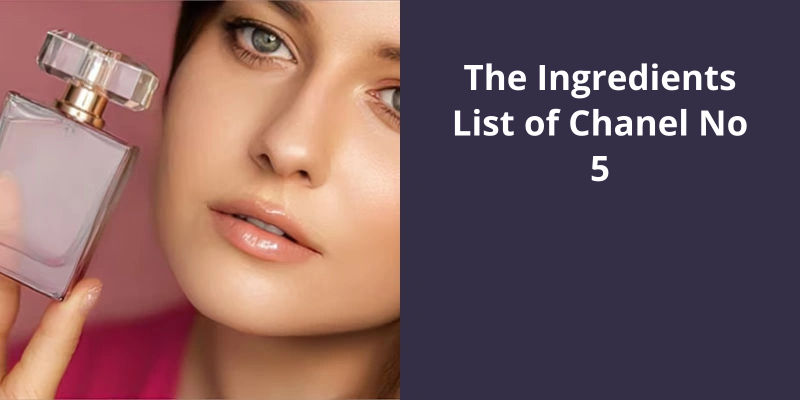Fragrances are delicate and complex creations, carefully crafted to enhance our senses and leave a lasting impression. However, like any other product, they too have a shelf life. Understanding what makes a fragrance go bad is essential in preserving it’s integrity and ensuring it’s longevity. While it may seem convenient to store your fragrance in the bathroom, with it’s steamy showers and temperature fluctuations, this can actually accelerate the expiration process. The heat and cool fluctuations can disrupt the delicate balance of the fragrance's chemical composition, causing it to deteriorate faster. Additionally, the humidity present in the bathroom can adversely affect the molecules within the perfume, further compromising it’s quality. It’s therefore imperative to keep your cherished summer scents in a cool, climate-controlled environment to maintain their freshness and extend their lifespan.

What Ruins Fragrance?
Additionally, exposure to oxygen can cause fragrances to go bad. When a fragrance is exposed to air, it can oxidize, resulting in a change in scent or a complete loss of fragrance. This process is even faster when the fragrance is stored in a bottle with a loose or faulty cap or when it’s sprayed directly onto the skin without properly sealing the bottle afterwards.
Another factor that can ruin a fragrance is improper storage. Fragrances should be stored in a cool and dark place, away from direct sunlight and extreme temperatures. Storing fragrances in a bathroom, for example, where humidity levels can fluctuate greatly, can lead to the degradation of the fragrance over time.
Certain ingredients in fragrances can also contribute to their deterioration. For example, fragrances that contain natural ingredients, such as citrus oils, are more prone to going bad. The volatile nature of these ingredients can cause them to evaporate more quickly, resulting in a less potent scent.
Therefore, it’s important to use fragrances within their recommended shelf life to ensure optimal freshness and longevity.
The Effects of Sunlight on Fragrances: How Exposure to UV Rays Can Degrade and Alter the Scent of a Fragrance.
Exposure to sunlight and UV rays can have a negative effect on fragrances, leading to degradation and alterations in their scent. The ultraviolet rays in sunlight can break down the chemical compounds present in the fragrance, causing it to go bad. This process is known as photo-degradation, and it can cause the fragrance to lose it’s original scent and potentially develop an unpleasant odor.
At What Temperature Does Fragrance Go Bad?
When it comes to the longevity of fragrances, temperature plays a crucial role. Perfumes are delicate compositions that can be affected by extreme temperatures. The threshold at which a fragrance may go bad is generally considered to be around 50°C (122°F).
Heat can cause chemical reactions within the perfume molecules, altering their composition and ultimately leading to a change in scent. This is why it’s crucial to store fragrances in a cool, dry place away from direct sunlight and heat sources. Exposure to high temperatures can expedite the oxidation process and degrade the quality of the fragrance.
Furthermore, fluctuating temperatures can also have a negative impact on fragrances.
It’s essential to store perfumes in a cool, dry place to prevent deterioration.
How Does Temperature Affect the Shelf Life of Fragrances?
Temperature can greatly affect the shelf life of fragrances. When exposed to high temperatures, such as in direct sunlight or near a heat source, fragrances can undergo chemical reactions that alter their composition. This can lead to the breakdown of the fragrance’s ingredients, resulting in changes to it’s scent and potentially causing it to go bad.
This method effectively eliminates strong perfume odors by breaking down the fragrance molecules and neutralizing them. Not only does alcohol remove the potent scent, but it also evaporates quickly, leaving behind a faint and pleasant aroma. However, knowing what causes the scent to fade can help prevent overapplication and ensure a longer-lasting and balanced fragrance experience.
What Kills the Scent of Perfume?
What kills the scent of perfume? The best way to neutralize perfume isnt scrubbing with soap or water or masking it with another scent, he says—its with alcohol. “Dip a cotton ball in rubbing alcohol and dab it on wherever you’ve sprayed too much perfume,” says Anderson. This helps to break down the molecules of the perfume, making it less potent and allowing it to dissipate more quickly.
But what makes a fragrance go bad in the first place? Exposure to heat, light, and air can all have a negative impact on the longevity and quality of a fragrance. Heat can cause the chemical compounds in a perfume to break down, altering it’s scent. Light and air can also oxidize the fragrance, causing it to change in both fragrance and color. Thats why it’s important to store your perfumes in a cool, dark place to help preserve their freshness.
Additionally, perfumes can go bad over time due to natural aging. Like any other product, perfumes have a shelf life, and their ingredients can deteriorate over time. The quality and scent of the perfume can degrade, making it less desirable to wear. It’s important to pay attention to the expiration dates on your perfumes and replace them as needed.
Natural ingredients tend to have a shorter shelf life than synthetic ones. The concentration of fragrance oils in a perfume also plays a role. Higher concentrations, such as in perfumes, tend to last longer than lower concentrations, like eau de toilette or body mists.
The scent of a perfume can go bad due to various factors such as exposure to heat, light, and air, as well as natural aging and the type and concentration of ingredients used. It’s important to store perfumes properly and replace them as needed to ensure that they maintain their desired scent and quality. And if youve sprayed too much perfume, a quick dab of rubbing alcohol can help neutralize the excessive fragrance.
The impact of cold temperatures on fragrances is a common concern among perfume enthusiasts. However, the general consensus is that leaving your perfumes in the freezing cold for a short period is unlikely to cause any significant damage, except for water-based fragrances. So, let’s delve deeper into this topic and explore how different types of perfumes react to cold weather.
Is It Bad for Fragrances to Get Cold?
Is it bad for fragrances to get cold? In short, getting left out in the freezing cold for a couple of hours or days probably won’t damage your perfumes, unless theyre water-based. While extreme temperature changes can sometimes affect the delicate balance of certain fragrance ingredients, the cold alone isn’t likely to cause significant harm.
In general, most fragrances are composed of a mixture of alcohol, essential oils, and other synthetic ingredients. These components are relatively stable and not easily affected by cold temperatures. However, it’s always a good idea to store your fragrances in a cool, dark place to help preserve their quality and longevity.
Exposure to excessive heat or direct sunlight can cause fragrances to deteriorate, lose their scent, or even become discolored.
However, it’s crucial to be cautious with water-based perfumes as they can freeze and potentially damage the bottle.
How to Prevent Freezing and Damage to Water-Based Perfumes in Cold Weather.
- Store water-based perfumes in a cool, dry place away from extreme temperatures.
- Avoid keeping them in the bathroom, where temperatures can fluctuate with hot showers.
- Keep the perfume bottles tightly sealed to prevent air exposure.
- Avoid placing them near windows or in areas where they’ll be exposed to direct sunlight.
- If traveling during cold weather, pack the perfumes in a well-insulated bag or suitcase.
- Consider using perfume atomizers or smaller travel-sized bottles to minimize air exposure.
- Never store perfumes in the car during winter, as the temperatures can drop significantly.
- Allow perfumes to acclimate to room temperature before using them after being stored in cold conditions.
- Avoid shaking the perfume vigorously when it’s cold, as this could alter it’s composition or cause leakage.
Conclusion
The exposure to humidity can further destabilize the delicate chemical composition of fragrances. Therefore, to ensure the optimal lifespan of your favorite scents, it’s recommended to store them in a cool and stable environment. By paying attention to storage conditions, you can prolong the freshness and effectiveness of your fragrance collection, allowing you to enjoy their olfactory delights for longer periods.





